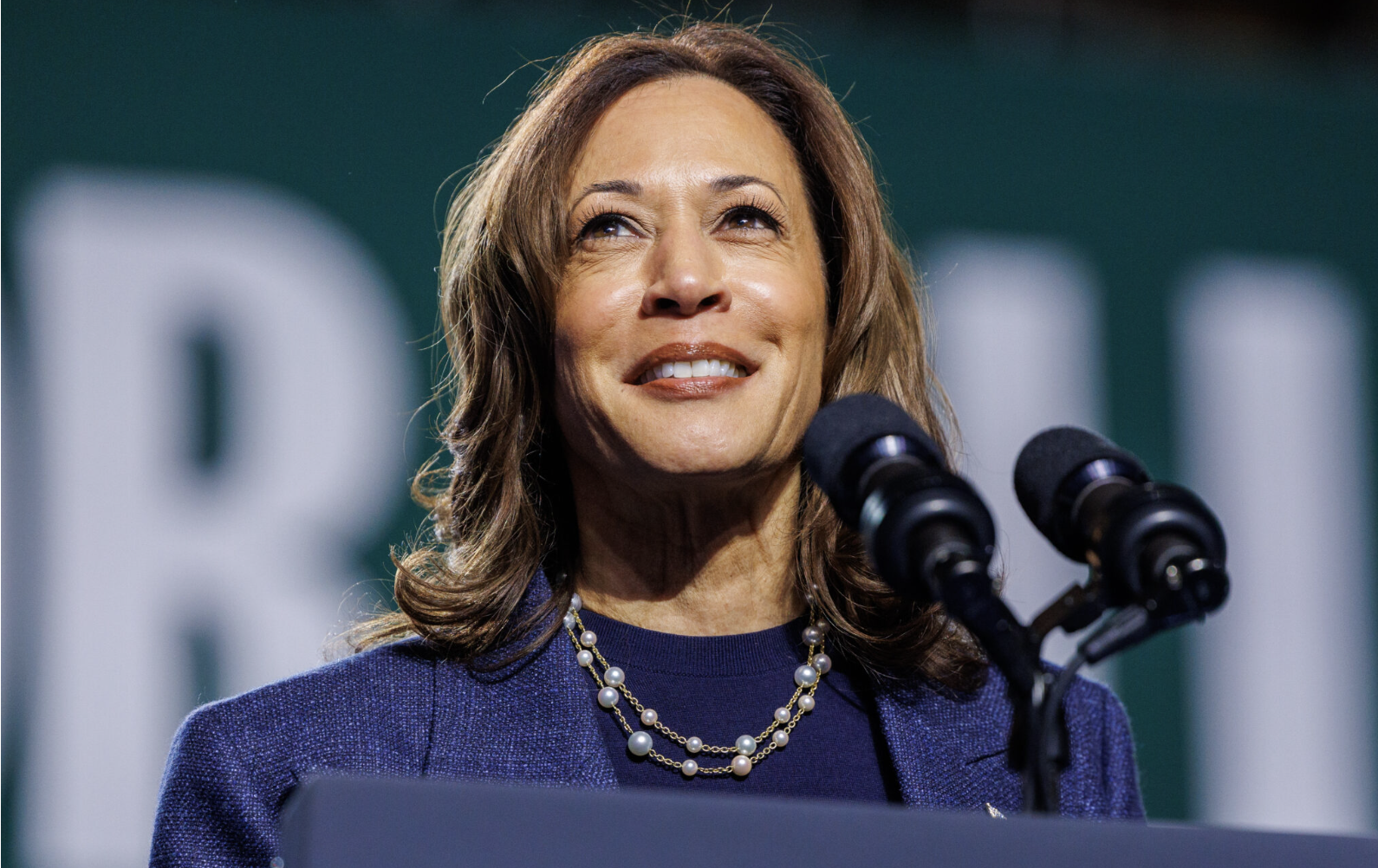
- Details
- By Neely Bardwell
Addressing a crowd of 6,000 at Michigan State University’s (MSU) Jenison Field House, she reinforced her campaign slogan, “We are not going back.”
“We have an opportunity in this election to finally turn that page on a decade of politics driven by fear and division. We are done with that, and we are exhausted with it, and America is ready. America is ready for a fresh start, ready for a new way forward, where we see our fellow Americans not as an enemy, but as a neighbor,” Harris said. “We are ready for a president who knows that the true measure of a leader is not based on who you beat down, it is based on who you lift up.”
MSU Native student leader, Kaylin Casper (Grand Traverse Band of Ottawa and Chippewa), opened the event by speaking about the importance of the student vote and the Native vote. The gym was decorated with campaign posters in MSU colors, green and white.
Once Harris arrived, she greeted attendees, saying, “Go green,” to which the crowd responded, “Go white,” a traditional greeting between fans of MSU sports teams.
She immediately began her final pledge to voters.
“I pledge to seek common ground and common sense solutions to the challenges you face…I pledge to listen to those who will be impacted by the decisions I make. I pledge to listen to experts, and I pledge to listen to people who disagree with me, because,
I don’t believe people who disagree with me are the enemy … I pledge to always put the country above both party and self and to be a president for all Americans.”
Harris spoke directly to Gen Z, empathizing with their drive for change.
“You all are rightly impatient for change,” she said. “You all have only known the climate crisis and are leading the charge to protect our planet and our future. You, who grew up with active shooter drills and are fighting to keep our schools safe. You, who now know fewer rights than your mothers and grandmothers, are standing up for freedom. None of these issues for you are theoretical.”
Harris exited through the crowd, giving attendees the opportunity to interact with her up close, even stopping to take a few selfies. Her parting words underscored the power of voting.
“From the very start, our campaign has not been about being against something, it is about being for something, a fight for a future with freedom, opportunity and dignity for all Americans. And so in these final hours, let us remember that there is power in knowing that we are together, and let us remember that your vote is your voice, and your voice is your power, and you are powerful.”
More Stories Like This
Native News Weekly (August 25, 2024): D.C. BriefsUS Presidents in Their Own Words Concerning American Indians
Golden Arches Refuse Service to Native American Wrestling Team in Ronan, Montana
Monday Morning: (January 19, 2026): Articles You May Have Missed This Past Weekend
Native Bidaské Special: The Data Behind MMIP—and What Comes Next with Dr. Aaron Payment
Help us defend tribal sovereignty.
At Native News Online, our mission is rooted in telling the stories that strengthen sovereignty and uplift Indigenous voices — not just at year’s end, but every single day.
Because of your generosity last year, we were able to keep our reporters on the ground in tribal communities, at national gatherings and in the halls of Congress — covering the issues that matter most to Indian Country: sovereignty, culture, education, health and economic opportunity.
That support sustained us through a tough year in 2025. Now, as we look to the year ahead, we need your help right now to ensure warrior journalism remains strong — reporting that defends tribal sovereignty, amplifies Native truth, and holds power accountable.
 The stakes couldn't be higher. Your support keeps Native voices heard, Native stories told and Native sovereignty defended.
The stakes couldn't be higher. Your support keeps Native voices heard, Native stories told and Native sovereignty defended.
Stand with Warrior Journalism today.
Levi Rickert (Potawatomi), Editor & Publisher


